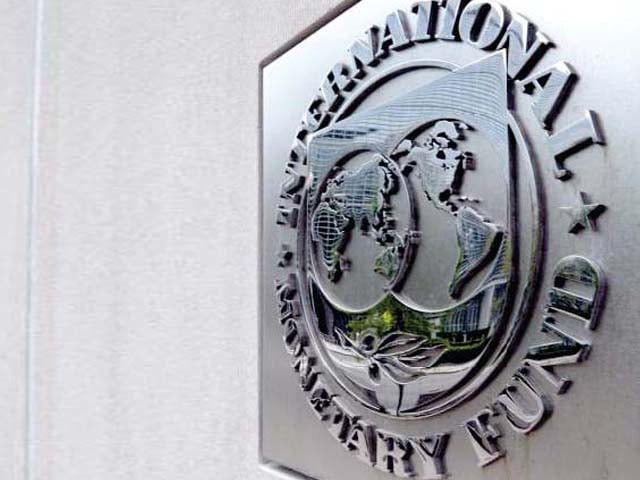IMF programme: ‘We tried, we failed, we give up’
A nation that applies for a bailout and then fails to live up to its conditions, leading to a suspension of payments.

IMF programme: ‘We tried, we failed, we give up’
Having failed to honour yet another agreement with the International Monetary Fund (IMF), Pakistan has abandoned its efforts to seek a restoration of the $11.3 billion bailout programme, which had been suspended last year.
A key government official told The Express Tribune that Islamabad would no longer request the IMF to send a review mission, a preliminary step that could ultimately have led to the revival of the programme, after recognising “harsh ground realities.”
The official said that Pakistan has also decided not to push ‘friendly countries’ – a reference mainly to the United States – to pressure the IMF into restoring Pakistan’s bailout programme.
However, there are still some officials in the finance ministry who believe that Finance Minister Abdul Hafeez Shaikh should use his personal relationship with David Lipton – former advisor to US President Barack Obama and newly appointed deputy managing director at the IMF – to seek such a restoration.
(Read: Islamabad mulls new IMF strategy sans US support)
It is unlikely that Lipton would be able to help, though. The decision on whether to restore the programme must be taken by the IMF collectively and no single individual can sway the decision one way or another.
The premature end of the most recent bailout programme confirms Pakistan’s image in the international financial community as a ‘single tranche country’ – a nation that applies for a bailout and then fails to live up to its conditions, leading to a suspension of payments after the release of the first tranche.
Since 1988, Pakistan has sought bailouts from the IMF 11 times and failed to complete all but one of them. The one signed in December 2001 was completed ahead of schedule.
“It will be a setback to Pakistan’s image and the policymakers will be known as the ones with a non-serious attitude,” admitted one high-ranking economic policymaker.
The current programme was signed on November 24, 2008 – at the height of the global financial crisis – and was originally meant to last 23 months. It was originally meant to be only $8 billion, but was later expanded. The deadline was also extended, first for one month and then for a further ten months to allow Islamabad more time to implement reforms.
Five tranches worth $8 billion have thus far been released, with the last tranche coming in May 2010. The last two tranches, worth $3.4 billion, remained undisbursed after the government failed to live up to its commitments on reducing the budget deficit and introducing fiscal reforms and energy sector reforms.
The programme will now end in suspension and be remembered as a “failure”, confessed an official at the Planning Commission.
Following this colossal failure, however, the government may plan on seeking a new IMF programme, according to one senior government official, to pay back the loans from the first programme. The country’s financial position is expected to begin deteriorating sharply in February 2012, when several loans are due for repayment.
The government is planning on asking the IMF to send a mission for consultations, a right to which any IMF member country is entitled under Article IV of the IMF charter, regardless of whether they are in any programme.
According to a finance ministry official, the consultation would send a signal that, despite its failure to reform, the government is still committed to remaining engaged with international lenders.
Performance under the programme
When Pakistan started the programme, inflation had just hit 25.6%, the budget deficit was projected at 7.4% of the total size of the economy and foreign exchange reserves would barely cover six weeks’ worth of imports.
During the first year of programme, the budget deficit came down to 5.2% of gross domestic product, still higher than the IMF-approved limit. In fiscal years 2010 and 2011, the deficit has been 6.2% and 6.5% of GDP respectively, bringing the three-year average to above 6% of GDP and far beyond what would be acceptable to the IMF.
Foreign exchange reserves have risen to $18 billion. But if one removes the effect of the IMF loan and aid from friendly nations, the central bank’s foreign exchange reserves would drop to more or less the same level as 2008. Inflation is still in double digits.
The government was required to increase the tax-to-GDP ratio but, at 8.5%, it is the lowest it has been in 27 years.
Published in The Express Tribune, August 13th, 2011.



















COMMENTS
Comments are moderated and generally will be posted if they are on-topic and not abusive.
For more information, please see our Comments FAQ